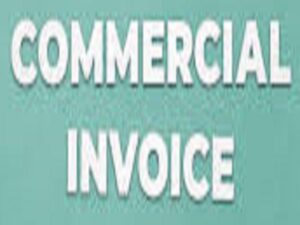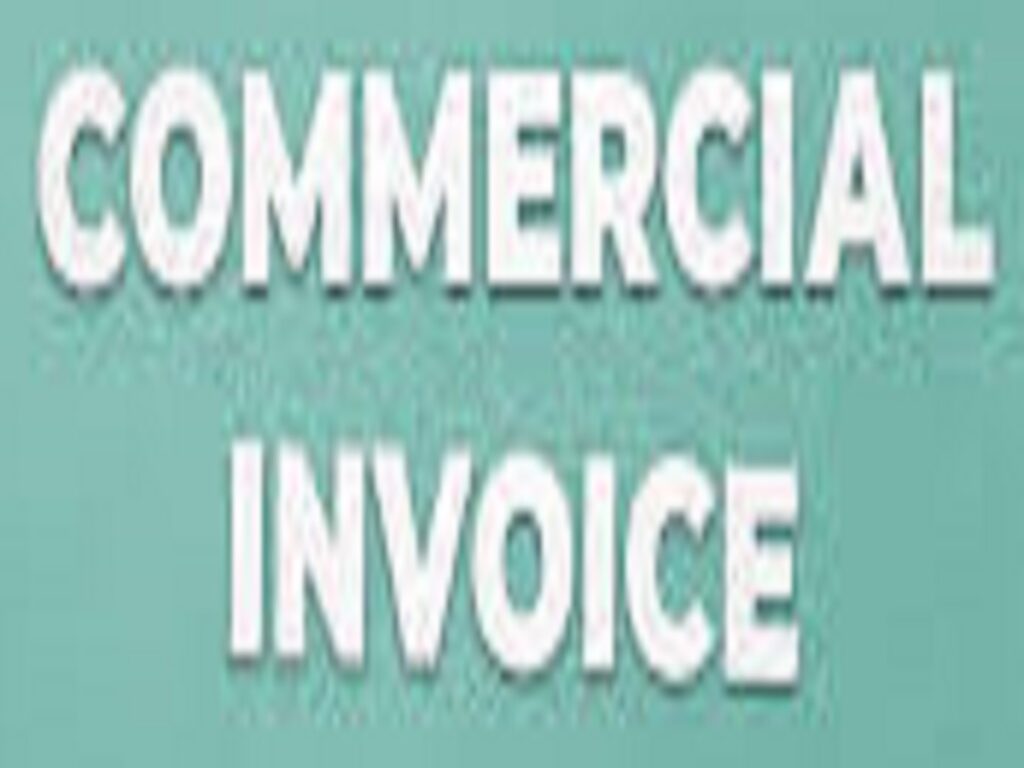 Call it commercial invoice, shipping invoice, or final invoice, the nomenclature used has nothing to add to the content. The commercial invoice is a real invoice, issued by the exporter or shipper to the importer of goods, containing specific actual information that helps the Nigerian Customs determine import duties. It defers from the pro forma invoice in that it is a customs document, and thus contains information in terms of goods detail, shipping cost, and terms of supply and payment. In addition, the commercial invoice should have Form M numbers for Nigeria.
Call it commercial invoice, shipping invoice, or final invoice, the nomenclature used has nothing to add to the content. The commercial invoice is a real invoice, issued by the exporter or shipper to the importer of goods, containing specific actual information that helps the Nigerian Customs determine import duties. It defers from the pro forma invoice in that it is a customs document, and thus contains information in terms of goods detail, shipping cost, and terms of supply and payment. In addition, the commercial invoice should have Form M numbers for Nigeria.
Table of Contents
ToggleRead also; SHIPPING TO NIGERIA – DESTINATION CLEARANCE/HANDLING
COMMERCIAL INVOICE FORMAT IN NIGERIA
Typically, the commercial invoice contains the following information:
Supplier’s Addresses and Contact Detail (consignor’s address/contact):
The commercial invoice must contain the address of the seller, supplier or exporter, depending on who is responsible at the country of supply. Other means of reaching the supplier; such as the email address, phone number, fax, website, contact person, etc. may be stated on the invoice as well.
Buyer Or Receiver’s Address and Contact Detail (consignee’s address/contact):
The commercial invoice must contain the address of the buyer or receiver, depending on who is responsible at the destination country. Other means of reaching the buyer; such as the email address, phone number, fax, website, contact person, etc. may be stated on the invoice. It is important that the buyer’s detail agree with what is embedded on his page at the single window for trade.
Invoice Number:
The invoice must contain a unique number that differentiates it from all other invoices. This could be just numbers like ‘12344’ or a combination of numbers and alphabets like ‘ABC1235’ or an alphanumeric and symbols like ‘VAG123#’ or just any code.
Invoice Date:
The invoice must have date in an understandable way; e.g., 5/4/2018 means 5 April 2018. Alternatively, you could write in words as 5 April 2018. Only remember that Nigeria systems uses day, month and year order, so that a/b/c means day a, month b, year c.
Products or Items Description:
The description of each item in the commercial invoice must be clear in terms of its trade name, intended use, model, or any other useful information. Some items could be described in just simple expression like ‘240V Lithium Battery’ while others may require long sentence description. E.g., ‘Galvanized wire mesh 2×1.9MM’ failure to describe an item clearly or giving it a wrong description may hinder Form M processing. For instance, an item may not be a prohibited item in Nigeria, but the description could be. So make so to capture your item properly for what it is.
General Description of Items/Shipment:
In a case where you have more than one item in the invoice, use a general expression to describe the shipment itself. This could be the usage of the items for, e.g. ‘Safety and protective equipment for use on-board.’
Read also; FORM M NIGERIA; HOW TO PROCESS AND OBTAIN IT
HS Codes:
This stands for harmonized system codes and is a kind of codes used in trade internationally to identify goods or classes of items. You may look up more on (here). Otherwise, Vagmon Integrated Services could help you out.
Read also; CUSTOMS HS CODES NIGERIA: HOW TO FIND HS CODES
Packages and Type:
State packages and type were applicable. E.g., an item could be 6 packages and the type of packing is dozens.
Quantity of Items:
This is required to enable quick check of total amount of items.
Unit Price and Total Amount:
State the unit price for each item and the total amount for each item.
Ancillary Charges:
These are costs not of the items itself, but for auxiliary services such as local transportation at origin or packing. Mention all ancillary charges where it applies.
Others are:
- Country of Origin: say the origin for each item.
- Country of Supply: Origin country may not be supply country because goods production and selling points can be different.
- Origin Port: say the origin port in the invoice. Otherwise, state the country only.
- Destination Country: mention Nigeria for instance.
- Mode of Transport: state whether road or air or sea.
- Arrival or Destination Port: state this, e.g. Port Harcourt Airport or Onne Seaport.
- Freight Cost: unlike the pro forma invoice that has an estimated shipping cost, the actual shipping cost must be on the commercial invoice.
- Total Amount or FOB Value: this is the total value of all items + the total ancillary charges. Ensure you state the FOB correctly.
- Total Cost and Value (Total C&F): this is the FOB Value + Freight Cost. This must be calculated and stated.
- Weight of Items: not compulsory to state. This can come in the packing list if desired.
- Terms of Agreement: state if applicable the supply arrangement between you and seller. Otherwise, this is not necessary but depends on you and your seller.
- Form M detail: state the Form M numbers (MF/BA).
- Signature and Stamp: the consignor should sign the invoice. Signature may not be an issue with some banks, but others may frown at it.
- Bill Lading or Air Waybill Number: it is not compulsory to state the shipping document number on the invoice.
Read also; WHAT IS A PROFORMA INVOICE IN NIGERIAN CONTEXT?
In Conclusion:
Commercial invoice helps the Customs Services to determine import duties, and must therefore contain Form M numbers. This article has discussed commercial invoice format in Nigeria, it does not matter which item comes first in the invoice. What is more important is that the invoice appears on a letterhead. Lastly, reach Vagmon via our phone contact +2349075526276 to help you clear your cargo from initiation to delivery.
Recommended for you;

